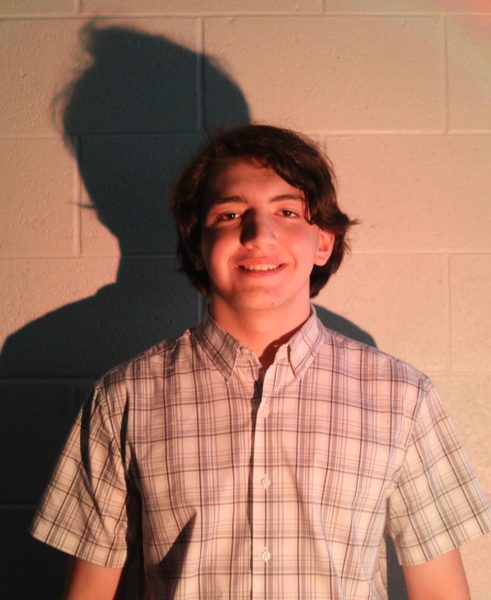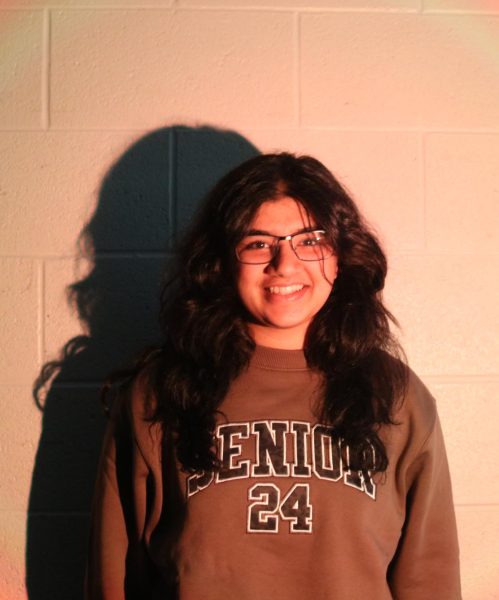According to the Merriam Webster Dictionary, drugs are defined as “a substance other than food intended to affect the structure or function of the body.” This encompasses alcohol, nicotine and other substances. In the state of Michigan, nicotine, alcohol and marijuana are illegal to possess and be used by anyone under the age of 21, with exceptions for medical marijuana users. Despite this, these drugs are used by students of Troy High School, sometimes even on school grounds.
Although the term “drug” encompasses many different substances, Brian Jones, Troy High School’s School Resource Officer, says that drug usage within Troy High School is “predominantly vaping.”
According to Jones, vape products are the most common drugs found on school grounds, with the distribution between THC and nicotine vapes being about 50-50. While less common, Jones has also come across alcohol and marijuana.
Of course, drug use is not limited to merely what occurs within Troy High School’s campus. Jones adds that, in general, “Psilocybin mushrooms are making a comeback, heroin [and] cocaine are always popular [and] marijuana in general is probably among the most popular next to alcohol.”
The question of which drugs are in use by and available to students is not particularly vexing. For Jones, the most vexing question is, “Why students would want to use something, knowing what we know.”
The question of why, is a complicated and, for some, painful question. To understand it, even with all the known side effects and dangers of drug abuse, one must begin to understand the students who have partaken in it.
An anonymous source, called Source A, is an ex-user. Source A said,“I’ve been two months sober now, but when I was smoking and doing drugs, mainly weed, I was smoking almost every day. Every day I came to school, I was smoking.”
Source A’s habit was a heavy one that would come to consume part of their academic day. “It was always in the bathroom,” they explained when asked where they would typically go to smoke.
“If I just didn’t smoke that day in school, I’d go to a friend’s house,” they elaborated, shedding light on the extent of the problem.
While on the subject of other students and friends who use drugs, Source A described it as a “huge thing. I have people who tell me they smoke that I had no idea they would or even people that shock me that they do.”
When asked to elaborate on which type of students surprised them, Source A gave an unexpected group: “Surprisingly, athletes; like a lot of athletes.”
Source A said, in their opinion, the reason for student drug usage is divided. “It’s a 50-50 split. A lot of it can be just stress and stuff and what kids are dealing with, but it can also be from peer pressure or they just want to genuinely try it, they’re just interested in it.”
Source A’s own reason for starting, is in the first half of the split. “When it was originally given to me, I was like twelve or thirteen. I was just going through a really rough patch and I just kinda stopped caring.”
They continue on in a somewhat somber tone, “I was at a depressive state, and when I tried it, it made everything bad go away.”
Source A, of course, is not alone in their experiences of drug use. Another anonymous source, Source B, says that they “use them [drugs] probably every day.”
Source B’s ongoing drug use consists of “mostly marijuana. Once in a while I do a psychedelic.”
Just like Source A, Source B knows of other drug users. When asked if their friends partake in drugs as well, Source B, without much hesitation, responded, “most of them, yeah.”
Source B describes that their start to using drugs was far from curiosity, or genuine interest. “I was younger, I was homeless for two years.” Solemnly, they continued, “I saw a lot.”
“I don’t think I’m gonna stop, to be honest with you. I think I’m gonna slow down though.” — Source B
When asked if they ever intend to stop fully, Source B responded, “I don’t think I’m gonna stop, to be honest with you. I think I’m gonna slow down though.”
Source B, however, did not begin to slow down for no reason. After waking up from a bender, lost and without a way to get home, Source B called their girlfriend, who they had just argued with about becoming sober.
They continued with a tinge of regret. “I didn’t want to. Screamed at her, cussed her out, left. Got high as f—, drunk as h—.”
“Woke up somewhere, I didn’t know where I was, and called her.” They ended their story with a bit of a chuckle. “She basically just forced me to get off of it for a ride home.”
Source B’s final remarks on drug use in Troy High School are simple. “I think there’s definitely overuse.”
“I probably spent around over 3000 dollars in two years.” — Source A
Source A had further reasons to quit their habit. “The amount of money I wasted on it was just insane.” They continued, “I probably spent around over 3000 dollars in two years.”
Source A added that “In the span of how long I’ve been smoking I’ve probably spent enough to buy a used car.”
Source A’s final reasons for quitting are focused on the future. “I wanna get my car, and I have to be drug tested for that, but I also just wanna be able to take a break from it, finish high school without it.”
Their advice for others who use drugs focuses on retaining control. “Moderation is very important. Taking very long healthy breaks is important. Making sure you don’t become addicted is important.”
Source A concludes by saying that “If you are addicted, [be sure] to seek out help if you need it.”
While Sources A and B turned to drug use as a means for coping, they recognize that drugs are sometimes used by their peers for more recreational purposes. Assistant Principal Dan House, who often handles cases of student discipline for the sophomore and senior classes, has his own take on the question of why students turn to using drugs, especially during school. “Young people seem to have that view of immortality more than someone my age, and so they feel that nothing is going to affect them to where it can take control of their life.”
House states that when he encounters cases of drug use in Troy High School, “it would be more the cool, peer pressure side than the coping side.”
In addition to peer pressure or looking cool, House suggests another reason students may smoke, particularly in school. “Sometimes I think it’s for the thrill. Why would you want to do that in school, unless you want to get caught?”
While vaping is a very common drug-related offense in school, House says that, in terms of discipline cases at Troy High School, “A classroom incident is more likely to occur than vaping.”
Alcohol use in Troy High School is hardly a pressing issue. House says that a single case of alcohol use a year is “on the high end.”
In terms of prevention of drug use in school, the options are more limited. House explains, “We have to have reasonable suspicion, we can’t just every day call a kid in and search him. They have to do something.”
The prevention that is present, however, emerges in an educational format. House says “Health [class] I think is an important one [preventative measure], they definitely address that issue [of drug use].”
The primary strength Troy High School has to combat the issue of drugs is the help that exists for those who have fallen into drug use. “We want the best for every kid here, and I think all of us in this office and the teachers in this building take that very seriously as our responsibility.”
House explains, “If a student is caught, we try to prevent it from happening in the future, so we have Troy Youth Assistance that we send them to.”
According to their website, Troy Youth Assistance is a non profit organization which “provides confidential, short-term, family-centered counseling and referral services for youth, 17 years of age or younger, and their families who live in Troy or attend Troy schools.”
House explains that, “We’re [Troy High School staff] not therapists.”
Despite this, Troy High School still has resources in house that students can utilize. House regularly meets with some students to find ways to support them through their struggles. House, however, does not shoulder all of it alone. Social workers also talk with students and counselors are able to regularly communicate with parents.
The staff of Troy High School are not alone. House explains how they “rely on outside sources too. There’s a lot of free things, like Troy Youth Assistance is free and all it needs is a referral.”
House’s advice for all students is, “Try to think things through before you do something.” House gives this advice, not just for drugs, but for all aspects of life.
For students struggling with an addiction, House encourages them to, “Reach out, talk to your counselor, talk to your assistant principal. We’re here to help.”




